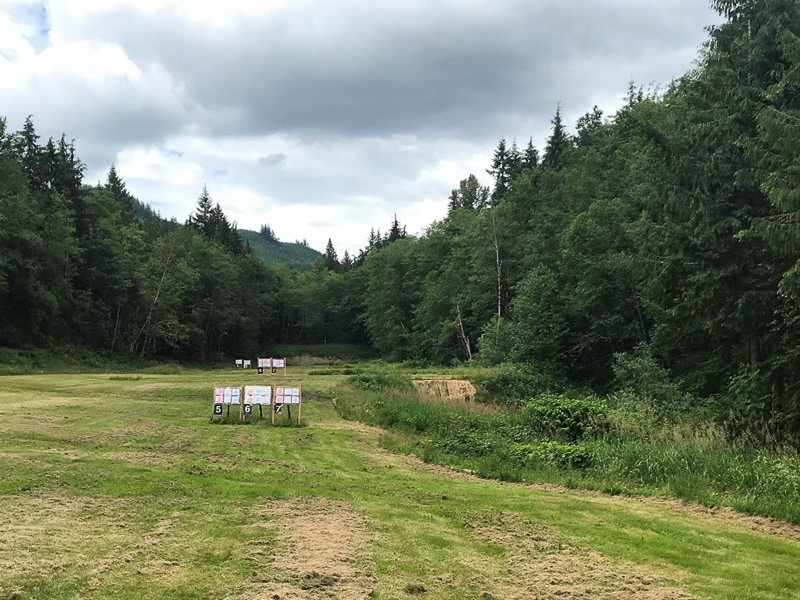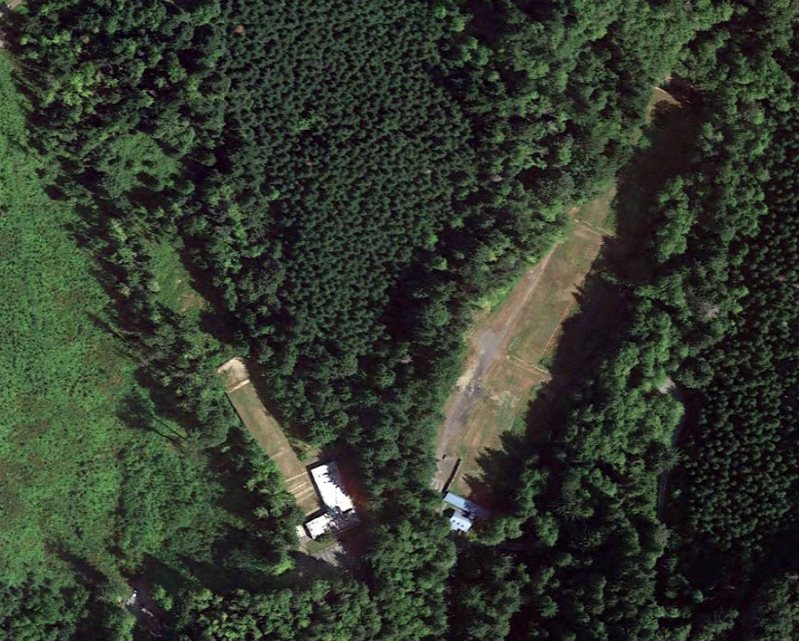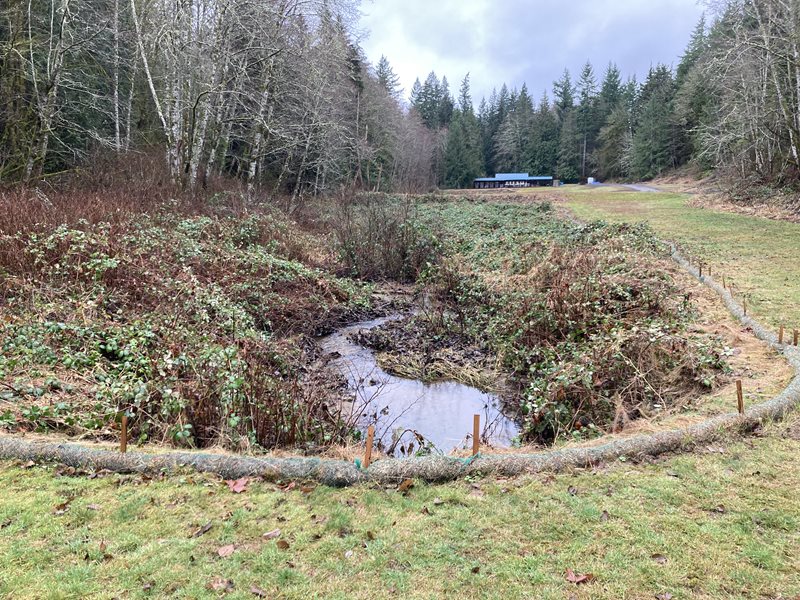
The high-power outdoor range at Plantation Rifle Range is bordered by wetlands and a fish-bearing stream.
Lead is a highly toxic substance that can harm people, wildlife, and plants. It’s found in many products, settings, and industries.
One example is Whatcom County Parks and Recreation’s Plantation Rifle Range, about eight miles south of downtown Bellingham. Lead waste from spent ammunition has been accumulating on the facility’s outdoor ranges since operations began in 1971. This waste is polluting the range soil, as well as wetlands and a salmon-bearing creek along the eastern side of the property. Water from the creek eventually flows into Lake Samish, the drinking water source for about 95% of the surrounding homes.
An aerial view of Plantation Rifle Range's two outdoor ranges.
Recent soil samples from the high-power range show levels of lead contamination that are high enough to classify Plantation Rifle Range as a hazardous waste storage facility. Water samples indicate lead concentrations are below levels allowed in drinking water but are above the safe threshold for aquatic life.
"Hazardous waste needs to be sent to a facility that can safely treat and manage it, to protect the environment and human health,” explains Christa Colouzis, an environmental engineer who leads corrective actions related to dangerous waste in our Northwest Region. “The rifle range has to clean up the waste on-site as well as change how they manage lead waste to prevent future contamination.”
Starting cleanup
Earlier this winter, Whatcom County took interim cleanup steps by pausing operations on the high-power range, installing erosion control to prevent contaminated soil from entering the wetlands and creek, and removing some surface debris.
Whatcom County has installed straw wattles to control erosion of the range's soil into an adjacent wetland.
For the next phase of the cleanup, we’re signing two agreements with Whatcom County. One is a legal document called an Agreed Order for the county to clean up the rifle range under our oversight. The other is an interagency agreement for us to provide state funding for some of the work.
Cleanup work will include sampling the outdoor ranges, determining the extent of the lead contamination, removing contaminated soil, properly disposing of the lead waste, and making improvements that would allow the range to reopen in compliance with environmental and safety regulations.
“Helping local governments and businesses to reduce dangerous waste and prevent future contamination is an important part of Ecology’s mission, and the support from Whatcom County has been very positive,” says Raman Iyer, the Hazardous Waste and Toxics Reduction section manager for our Northwest Region. “In this case, we have a partner who has both the intent and the funding to do cleanup. We’re hopeful that the cleanup will go smoothly and successfully this summer.”
“We take the health of our community and environment very seriously,” says Bennett Knox, director of the Whatcom County Parks and Recreation Department. “The funding from the state will help us to move quickly to address these concerns. We look forward to working with Ecology on the cleanup.”
This cleanup is anticipated to be complete in late 2023.
Commenting on the cleanup process
We are partnering with Whatcom County to clean up Plantation Rifle Range under a legal agreement called an Agreed Order. We are holding a public comment period on the Draft Agreed Order and associated documents from Feb. 13 to March 17, 2023. The three documents for review and comment are:
- Draft Agreed Order: This legal agreement will require Whatcom County to investigate environmental conditions, identify alternatives for cleaning up the site, and develop a cleanup action plan.
- Interim Action: This document describes the plan to expedite the cleanup process to take advantage of available funding. The County will assess site contamination as an interim action.
- Draft Public Participation Plan (PPP): The PPP is our plan for informing and involving the community during the cleanup process.
All comments received during the public commment period are considered, and documents and plans may change based on public comment.
Visit our Plantation Rifle Range cleanup site webpage for the latest information and updates as the cleanup progresses.
Hazardous Waste and Toxics Reduction
Our Hazardous Waste and Toxics Reduction program enforces Washington's toxics laws under authorization from the U.S. Environmental Protection Agency. Washington’s Dangerous Waste Regulations guide businesses to proper hazardous-waste management.
We offer technical assistance to businesses to reduce or eliminate the use of hazardous chemicals, work to identify safer chemical alternatives, support the development of green chemistry, and test consumer products for toxic chemicals.



